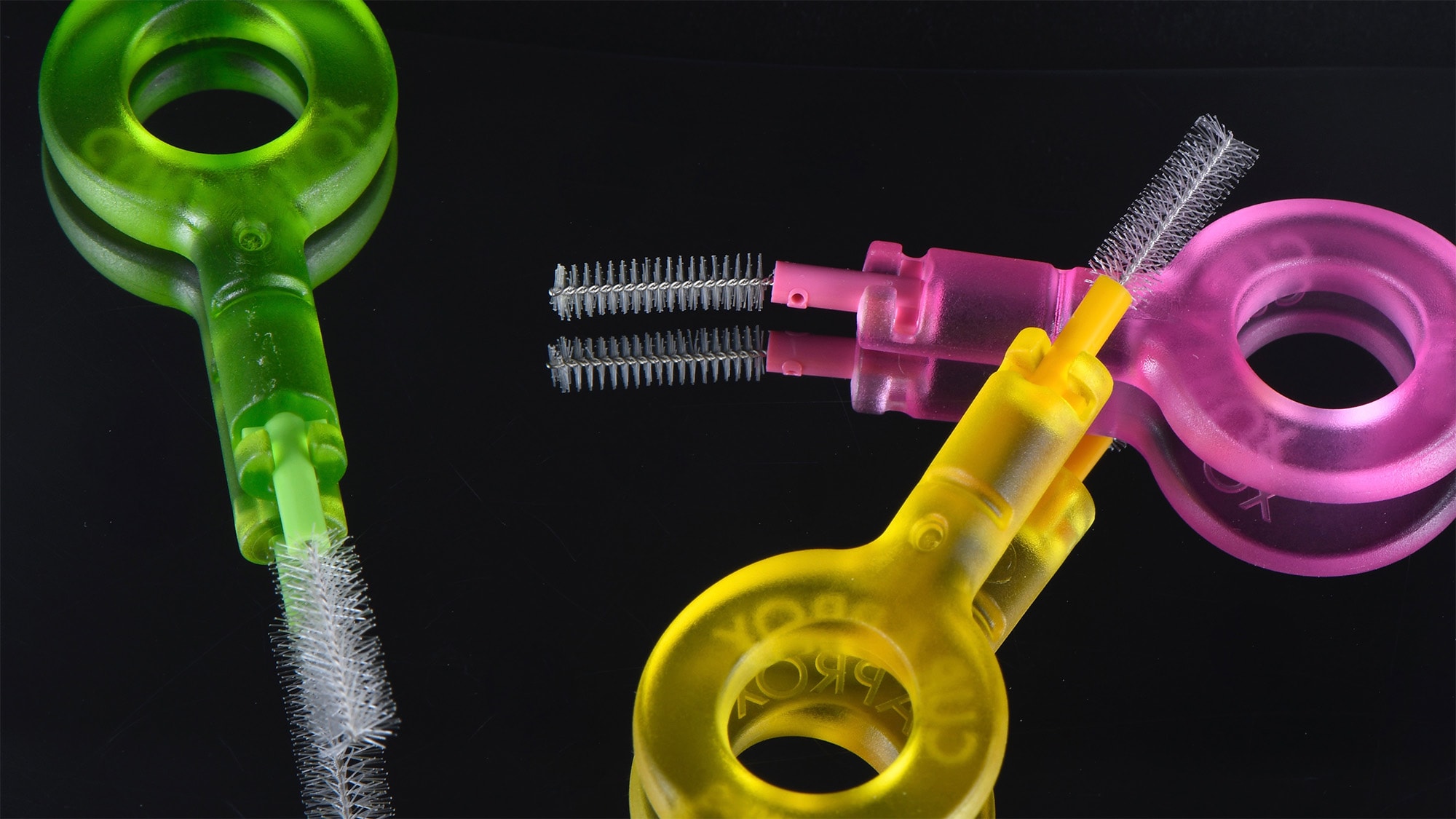
How many times a day should we brush our teeth?
You should brush your teeth at least twice a day (morning and night) for 2 minutes.
Is the electrical toothbrush more effective than the manual toothbrush ?
The classic toothbrush cleans teeth just as well as the electric toothbrush does, provided you have an effective brushing method.
What type of toothbrush should I choose?
It is strongly recommended to use a soft toothbrush (20/100) because a medium or hard toothbrush may create gingival recessions and mylolysis (the gums retract and the base of the tooth becomes hollow).
Is a toothbrush enouth to fully clean my teeth?
No, because the toothbrush does not clean “between the teeth”. It is therefore necessary to pass the interdental brushes after the toothbrush has been used, to completely clean your teeth.
Is dental floss more effective than small brushes?
No, brushes are more effective than dental floss. It is important to choose the diameter of the brushes that must pass without force but without being “loose” in the inter-dental spaces.
I have bleeding gums. What should I do ?
You are probably suffering from gingivitis, gum inflammation related to the presence of plaque and tartar (which is calcified plaque) around your teeth. It is necessary to accentuate the brushing in the areas which bleed and then use the interdental brushes; within 48 hours the inflammation will diminish and the bleeding will disappear. If they persist, make an appointment for teeth cleaning.
My teeth get sensitive whenever I brush them. Is it normal?
If your teeth are sensitive at their base (at the level of the junction with the gums), they can be dental hypersensitivities related to gum retraction: the root of the tooth is not being covered with enamel, this area is more sensitive to hot and cold if exposed. Remineralizing mouthwashes alleviate these symptoms. It can also be a sign of tooth decay. Make an appointment with your dentist to evaluate the problem.

